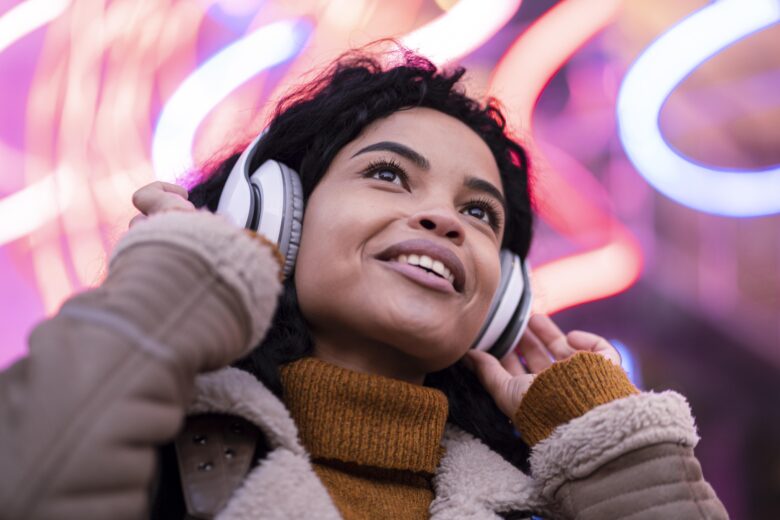Artificial intelligence is no longer a futuristic concept—it’s here, and it’s transforming how we create, produce, and experience music. From intelligent mastering tools to fully AI-generated compositions, the integration of machine learning in music production is reshaping the industry at every level. In this article, we explore how AI is influencing modern music, the tools leading this revolution, and what it means for artists, producers, and the future of sound itself.
What Is AI in Music Production?
AI in music production refers to the use of machine learning algorithms and computational models that can analyze, generate, and manipulate music data. These systems are trained on vast datasets of existing music to identify patterns, predict structures, and make creative decisions—some of which even mimic human intuition.
The evolution began with simple rule-based composition tools in the 1990s and has advanced into deep learning models capable of generating entire symphonies. Today’s AI applications span from composition and lyric writing to mixing, mastering, and performance simulation.
AI Tools Transforming Music Creation
A growing number of AI-driven platforms are empowering musicians to explore new creative frontiers:
- AIVA – An AI composer capable of writing classical scores, soundtracks, and ambient music based on mood and style inputs.
- Amper Music – A user-friendly platform that lets creators generate music with customizable structure and instrumentation.
- Soundraw – Blends human curation with AI composition to create tracks for video and commercial use.
- Boomy – Allows anyone to create and release original songs with AI in minutes, often with no prior music knowledge.
Beyond composition, AI is also enhancing production workflows. Tools like iZotope Neutron use machine learning to suggest mix balances, while LANDR offers AI-driven mastering. These tools analyze audio input and apply intelligent adjustments that once required expert-level knowledge and experience.
How Artists Are Using AI in Their Workflow
AI isn’t just a novelty; it’s becoming a core part of creative processes for many musicians. Rather than replacing human artistry, it often acts as a collaborative tool:
- Taryn Southern was one of the first mainstream artists to produce an entire album using AI tools like Amper Music and IBM Watson Beat.
- Holly Herndon developed a neural network named “Spawn” trained on her own voice, which became both an instrument and collaborator in her 2019 album.
- David Bowie’s posthumous AI project explored generating new musical ideas using models trained on his past works.
Many independent producers use AI to automate time-consuming tasks like beat matching, vocal tuning, or genre-specific arrangement, giving them more time to focus on high-level creative decisions. AI also helps artists overcome creative blocks by suggesting chord progressions, lyrics, or rhythmic variations they might not have considered.
Advantages and Opportunities of AI in Music
There are numerous benefits to incorporating AI into music production:
- Accessibility: AI levels the playing field by reducing the need for technical expertise. Anyone with a laptop can generate and release professional-sounding tracks.
- Speed: Composing background music or generating variations on a theme takes minutes rather than hours.
- Innovation: AI offers unconventional outputs that can lead to groundbreaking musical ideas and cross-genre experimentation.
- Personalization: AI enables adaptive music systems that respond to user inputs in gaming, wellness, and interactive media.
As these technologies become more intuitive, they allow creators to move from concept to finished product with fewer barriers—and often with more creative freedom.
Challenges and Ethical Considerations
Despite the excitement, AI in music raises significant questions:
Who Owns AI-Generated Music?
If a machine creates a song, who holds the rights? The user? The developer? Current copyright laws are ill-equipped to handle fully autonomous creation, leading to legal gray areas and disputes.
Originality and Artistic Value
Some argue that AI-generated music lacks “soul” or genuine expression. Can something be truly artistic if no human emotion or intention is involved? These debates echo past controversies about sampling, autotune, and even synthesizers—tools that are now widely accepted.
Deepfakes and Identity Theft
AI can replicate voices with stunning accuracy. While this opens doors for virtual duets or voice restoration, it also enables misuse. AI-generated songs mimicking artists without consent could dilute their brand or create public confusion.
Job Displacement
As AI handles tasks once reserved for skilled engineers, some fear it could displace human workers in production, mixing, and composition. Others argue it will instead shift their roles toward creative direction and curation.
The Future of AI in Music Production
The next wave of AI music tools promises even greater integration and sophistication:
- Generative models like Google’s MusicLM or Meta’s AudioCraft can produce high-fidelity audio based on text prompts or reference sounds.
- Interactive DAWs may incorporate real-time AI suggestions for melody, harmony, and structure based on user input.
- AI-enhanced live performances will use real-time data to adjust tempo, effects, or arrangements dynamically in response to audience energy or environmental cues.
- Custom sonic identities for brands, influencers, and individuals could be generated on demand, tailoring mood and emotion with AI precision.
As the technology evolves, the role of AI in music will likely shift from novelty to necessity—becoming a seamless part of the creative ecosystem.
Conclusion: Embracing the AI-Powered Music Era
AI is not here to replace human creativity, but to augment it. Like all technological shifts in music history, from multitrack recording to MIDI, it introduces new ways of working, new tools for expression, and new ethical questions to consider.
For artists and producers, the key lies in balance. Use AI to explore ideas, speed up workflows, and challenge your own creative assumptions—but maintain the human voice and emotional core that makes music resonate.
The future of music is being co-written by humans and machines. Whether you’re a seasoned producer or a bedroom beatmaker, AI is a powerful collaborator—ready to help shape the sound of tomorrow.



